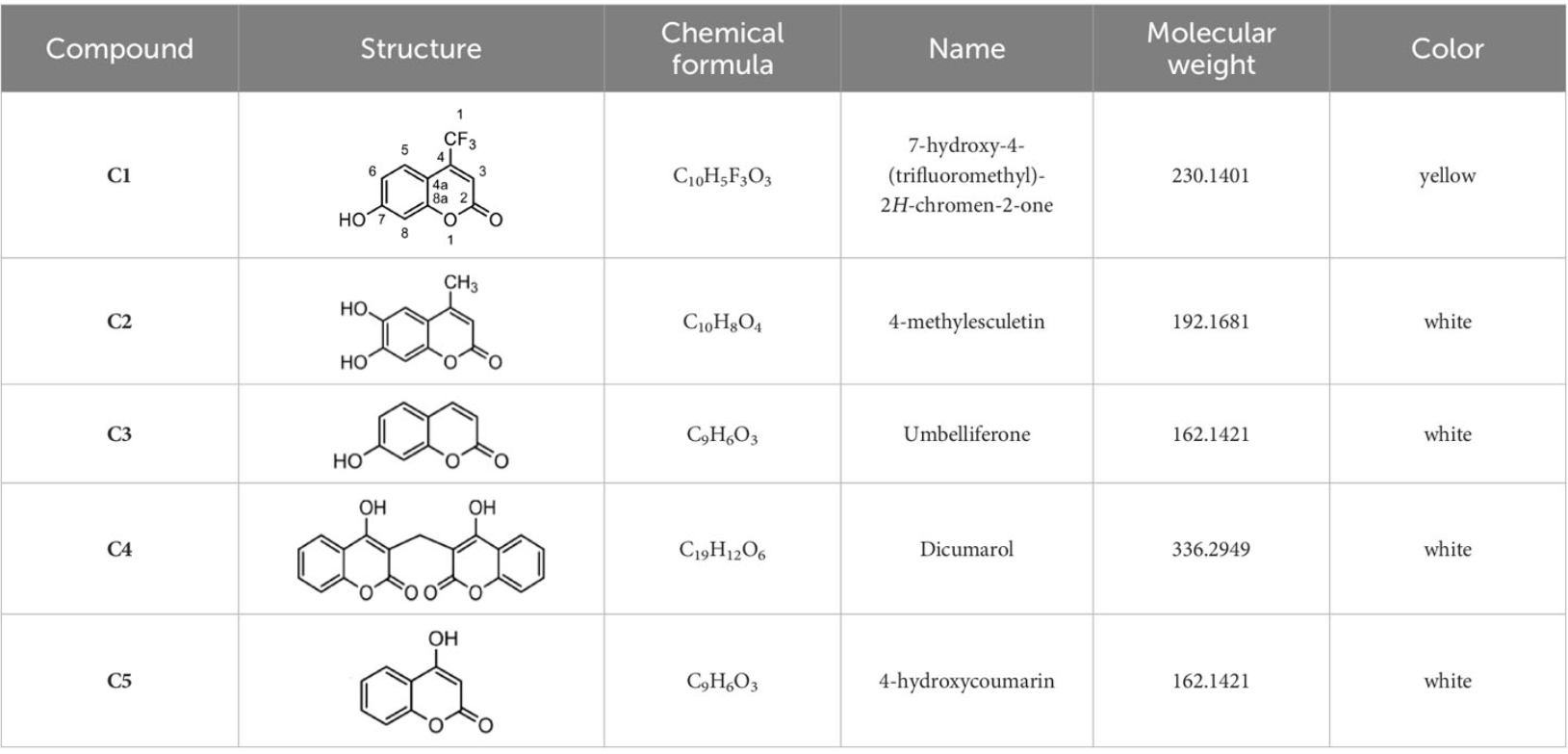Coumarin, a phenolic compound and secondary metabolite produced by plants such as Tanga and Lime, exhibits a variety of biological activities including antimicrobial and anti-inflammatory effects. Coumarin derivatives have been synthesized via Pechmann condensation and investigated for their potential therapeutic applications.
This study focuses on the antimicrobial and gut immune-regulatory functions of coumarin derivatives C1 and C2. The research includes both in vitro and in vivo experiments to assess the efficacy of these compounds in combating pathogenic infections and regulating gut inflammation.
Methods
- Synthesis of Coumarin Derivatives:
- Coumarin derivatives were synthesized via Pechmann condensation and characterized for their structural properties.
2. In Vitro Antimicrobial Activity Assay:
- Pathogen-killing activity of coumarin derivatives C1 and C2 was assessed using the disc diffusion method and SYTOX Green assay to evaluate bacterial membrane integrity.
- SEM Analysis: Used to visualize the morphological changes in bacterial cells treated with coumarin derivatives.
3. In Vivo Infectious Colitis Model:
- Model: Citrobacter rodentium-induced colitis model was used to mimic gut inflammation in mice.
- Treatment: Mice were administered C1 coumarin derivatives and monitored for changes in pathogen loads, inflammatory immune cells, cytokine levels, and gut microbiome composition.
- Flow Cytometry: Employed to identify changes in immune cell populations in the gut.
- Gene Expression Analysis: Measured the levels of inflammatory cytokines (IL-6 and IL-1b) in colonic tissues.
4. Microbiome Analysis:
- 16S rRNA Sequencing: Used to assess changes in gut microbiome diversity and composition.
- Functional Gene Enrichment: Evaluated the impact of coumarin derivatives on microbial metabolic pathways using functional prediction tools.
Key Findings
In Vitro Antimicrobial Activity:
- Coumarin derivatives C1 and C2 disrupted bacterial cell membranes, leading to significant pathogen-killing activity.
- SEM analysis confirmed the destruction of bacterial cell membranes by these derivatives.
In Vivo Gut Inflammation Regulation:
- C1 derivatives reduced pathogen loads and inflammatory immune cells in the gut.
- Treatment with C1 derivatives lowered levels of IL-6 and IL-1b cytokines, indicating reduced inflammation.
- Coumarin derivatives helped maintain gut microbiome balance by reducing pathogenic bacteria and increasing beneficial bacteria.
Functional Gene Enrichment:
- Pathogen infection reduced genes associated with lipid and nucleotide metabolism, while C1 derivative treatment restored these pathways.
- Enhanced lipid metabolism and DNA repair pathways were observed in C1-treated animals, indicating a protective effect against inflammation and pathogen-induced damage.
This study demonstrates that coumarin derivatives, particularly C1, exhibit strong antimicrobial and anti-inflammatory activities. These compounds effectively reduce pathogen-induced gut inflammation and modulate the gut microbiome, suggesting their potential as therapeutic agents for treating infectious diseases.
Link to the article : https://tinyurl.com/mthfv323
